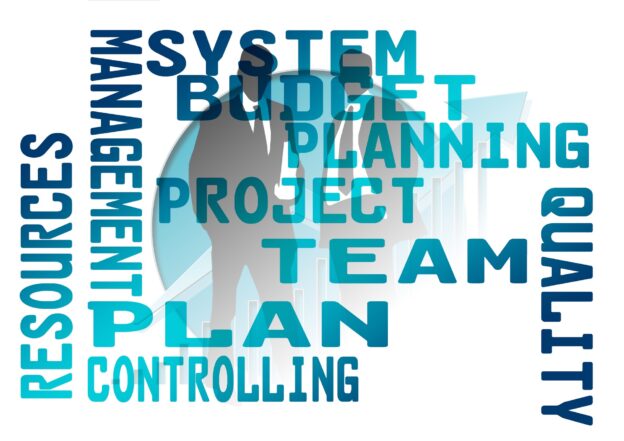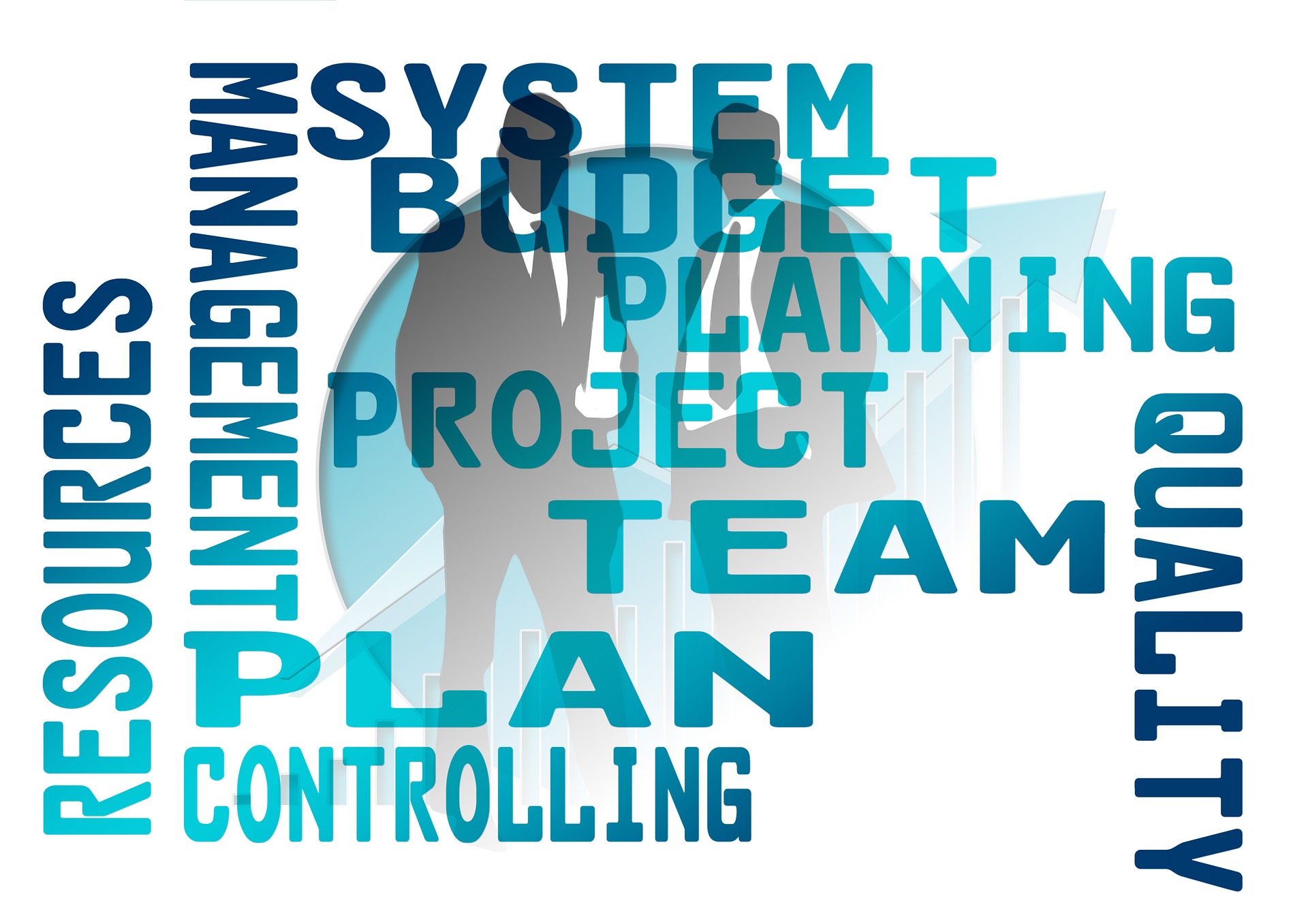“Unlock Your Business Potential with Expert Strategy and Consulting”
Introduction
Business strategy and consulting is a field of expertise that focuses on helping organizations develop and implement effective strategies to achieve their goals. It involves analyzing an organization’s current situation, identifying opportunities and threats, and developing a plan to capitalize on the opportunities while mitigating the threats. Business strategy and consulting professionals provide advice and guidance to organizations on how to best achieve their objectives. They also help organizations develop and implement strategies to increase their competitive advantage, improve their performance, and maximize their profits. Business strategy and consulting professionals are highly knowledgeable in the areas of business planning, market analysis, financial analysis, and organizational development. They are also well-versed in the latest trends and developments in the business world.
Why You Need a Business Strategy Consultant For Your Business
Having a business strategy consultant on board can be a great asset for any business. A business strategy consultant can help you develop a comprehensive plan for your business that will help you reach your goals and objectives.
A business strategy consultant can provide you with the expertise and knowledge to create a plan that will help you achieve success. They can help you identify the areas of your business that need improvement and develop strategies to address them. They can also help you identify potential opportunities and develop strategies to capitalize on them.
A business strategy consultant can also help you develop a competitive advantage. They can help you identify your competitors and develop strategies to outpace them. They can also help you develop a marketing plan that will help you reach your target audience and increase your customer base.
A business strategy consultant can also help you develop a financial plan. They can help you create a budget and develop strategies to manage your finances. They can also help you identify potential sources of funding and develop strategies to secure them.
Finally, a business strategy consultant can help you develop a plan for the future. They can help you identify potential risks and develop strategies to mitigate them. They can also help you develop a plan for growth and expansion.
Having a business strategy consultant on board can be a great asset for any business. They can provide you with the expertise and knowledge to create a comprehensive plan that will help you reach your goals and objectives. They can also help you develop a competitive advantage, create a financial plan, and develop a plan for the future.
The Value of a Lawyer on Your Team With Business Strategy Experience
Having a lawyer on your team with business strategy experience can be invaluable to your organization. A lawyer with this type of experience can provide invaluable insight into the legal implications of your business decisions, helping you to make informed decisions that are in line with the law.
A lawyer with business strategy experience can help you to identify potential legal risks associated with your business decisions. They can provide advice on how to mitigate those risks and ensure that your business is compliant with applicable laws and regulations. They can also help you to develop strategies to protect your intellectual property and ensure that your business is operating within the bounds of the law.

A lawyer with business strategy experience can also help you to negotiate contracts and other legal documents. They can provide advice on how to structure contracts to ensure that your interests are protected and that you are getting the best deal possible. They can also help you to understand the implications of any agreements you enter into and ensure that you are not exposed to any unnecessary legal risks.
Finally, a lawyer with business strategy experience can help you to develop strategies to protect your business from potential litigation. They can provide advice on how to structure your business to minimize the risk of litigation and ensure that you are prepared to defend yourself in the event of a lawsuit.
Having a lawyer with business strategy experience on your team can be a great asset to your organization. They can provide invaluable insight into the legal implications of your business decisions and help you to make informed decisions that are in line with the law. They can also help you to negotiate contracts and other legal documents, protect your intellectual property, and develop strategies to protect your business from potential litigation. With the right lawyer on your team, you can be sure that your business is operating within the bounds of the law and that you are getting the best deal possible.
How a Business Strategy Consultant Helps You Achieve Your Financial Goals
A business strategy consultant can help you achieve your financial goals by providing you with the necessary guidance and expertise to develop a comprehensive and effective business strategy. The consultant will work with you to identify your current financial situation, analyze your current business operations, and develop a plan to reach your desired financial goals.
The consultant will first assess your current financial situation and identify any areas of improvement. This includes analyzing your current financial statements, such as income statements, balance sheets, and cash flow statements. The consultant will also review your current business operations, such as marketing, sales, and customer service. This assessment will help the consultant identify any areas of improvement that can help you reach your financial goals.
Once the consultant has identified areas of improvement, they will work with you to develop a comprehensive business strategy. This strategy will include a detailed plan of action to reach your desired financial goals. The plan will include specific steps to take, such as increasing sales, reducing costs, and improving customer service. The consultant will also provide guidance on how to implement the plan and track progress.
Strategy consulting is when businesspeople — generally executives, boards, or management bring in a third party to offer an outside, expert perspective on their business challenges. Strategy consultants usually have considerable industry knowledge and are expected to assess high-level business issues objectively. They take a holistic look at specific problems companies are dealing with and give advice on how they should approach them.
Generally, strategy consultants support their clients for a fixed timeframe. Within that window, they are expected to dedicate all of their time, effort, and attention to a specific problem.
Types of Business Strategy Consulting
1. Operations Consultants
This is one of the most basic and necessary types of business consulting and a great place to start if you’ve never invested in the services of consultants before. Operations consultants can help your enterprise be more flexible, responsive, and sensitive to the demands of clients and the market in general.
2. Business Strategy Consultants
Once your operations are in order, then it may be time to consider business strategy consulting. Knowledgeable consultants should be able to help you design a roadmap that addresses immediate needs as well as long-term goals, with plans to integrate new initiatives into the current business model to ensure a successful mix of technology, processes, and people.
This type of consultancy will assist your enterprise in achieving and preserving profitable growth at a level that keeps you competitive, even if you do not currently have the systems in place to achieve this type of burgeoning success.
3. Investment Consultants
Every enterprise should be concerned with how they spend their money, but not every business leader has the tools and information to invest in the most valuable initiatives for his or her enterprise. Investment consultants can help plan and implement an effective portfolio of investments and initiatives that make the most of a business’s precious capital and ensure profitability and longevity.
4. Sales and Marketing Consultants
Of course, the sales and marketing teams are the bread and butter of any business – without them, there would be no customers to provide products and services to, and thus no money to go around. If your sales and marketing department is not quite hitting the mark, and the effective consulting firm can assess your current strategies and develop a plan to improve upon them.
There are always new opportunities to sell and market your products and/or services if you keep your eyes on the needs of current and potential clients. Your sales and marketing teams need to find and take advantage of these opportunities to ensure growth as well as client retention. Developing the right system and approach can ensure that your people are able to do just that.
5. Technology Consultants
A little bit of good technology strategy consulting can go a long way in the modern business world. Even with the most talented information technology professionals working hard within an organization, there are still many challenges and roadblocks to IT efficiency that may arise, which require expert consulting to move beyond. If your business utilizes cloud storage or relies on cloud services it may be wise to look into Cloud Consulting Services these are professionals that specialize in working with these types of technologies.
What Does A Strategy Consultant Do?
When a strategy consultant takes on a new project, they typically start by doing an in-depth analysis of their client’s business goals and objectives. The goal of this analysis is to understand if their current practices are in alignment with what they want to achieve. Based on their analysis, they will provide strategic recommendations the company can implement to drive better results.
In addition to their business analysis, strategy consultants can provide expertise on market research and the competitive landscape so the client can make well-informed decisions that are in the best interest of the health of their company.
When working with a strategy consultant, a company can receive guidance on the following:
• Budgeting advice — Input on best practices to cut costs and drive revenue.
• Production strategies — Recommendations to increase efficiency creating their product.
• Opportunity management — Highlighting new opportunities for revenue or product offerings.
After providing sound recommendations to their clients, consultants may have the opportunity to support the implementation process.
Strategy Consulting Example
In the example above, a strategy consultant with expertise in digital transformation could help the publication decide how to proceed. Once the consultant was on board, they would begin by learning the ins and outs of the magazine’s operation, analyze their current web traffic and sources, review physical magazine sale data to find trends, and conduct in-depth competitive analysis on the print and web editions of the company’s main competitors.
They’d address issues like whether the website’s ad revenue would offset losses from reduced subscriptions. They could gather information on the company’s IT infrastructure to see if it could handle more web traffic. And they could make an educated projection as to whether people will still be interested in the company’s printed magazines a few years down the line.
With this information in hand, the consultant recommends a two-prong approach to capitalizing on the magazine’s web traffic, and to accommodate reader behavior. First, the company should implement a redesign to improve the reader experience and boost their SEO. Once the web content has been optimized, they can implement the second phase – a gated content system allowing devoted readers to access more content by paying a small monthly fee.
The consultant makes this recommendation to the executives at the publishing company, along with forecasted data to show the revenue they could capture, and how this strategy supports the company’s growth. Once the executive team has bought off on the strategy, the consultant can work with management on the implementation plan.
Why Strategy Consulting?
The concept of strategy consulting may raise some questions. Why do companies need external industry experts? Shouldn’t executives at companies be experts themselves?
Can they not pull other employees from within the company to help address these kinds of issues in-house?
The answer to all of those questions is mostly a matter of focus and impartiality.
In the example above, a strategy consultant would be focused solely on the issue of the publication’s transition from print to digital and the implications of that shift. The executives at the company wouldn’t be able to do that. They’d have an entire company to run. They wouldn’t have time to get fixated on individual topics.
Strategy consultants also offer level-headedness that can’t always be expected from people within the company. Boards, executives, and other managers have personal stakes in their businesses. Those stakes often come with biases and preconceptions that can cloud their judgment on specific issues.
A strategy consultant brings an outside perspective. They’re not bound by personal investment in the company. Their judgment is supposed to be clear and impartial. This way, executives can get an opinion from a source that’s free of emotion and personal sensitivity.
How to Get Into Strategy Consulting
Get the Right Degree(s)
It may go without saying, but you’ll need at least a bachelor’s degree to get into strategy consulting most likely in business administration or a similar field. But a bachelor’s degree is the bare minimum when it comes to landing a strategy consulting gig. There’s no guarantee that it’ll get you there. Though there’s no definitive education standard across the board for all consulting firms, they often prefer graduates with MBAs. Consulting firms are looking for mature candidates with a solid concept of business management, analytical skills, and a demonstrated knack for problem-solving.
You should also pursue internships — ideally with a consulting firm or within an in-demand industry — throughout your time in school. This will give you a jump on gaining the experience you need to land a strategy consulting job down the line.
Get a Lot of Experience Under Your Belt
Being a strategy consultant takes considerable business and consulting acumen, and there’s a lot that goes into that. You have to know how to conduct yourself in a boardroom. You’re going to be working closely with executives, so you need to know how to communicate with them professionally and effectively.
Strategy consultants also have to make difficult decisions on a consistent basis. That’s what they’re paid to do. If you’re interested in the field, you’re going to need the confidence and judgment to make sure your advice is sensible and actionable. You’ll also need to be prepared to clearly explain the rationale behind it at any time.
Most people aren’t born with all of these skills. They come with experience. You’ll most likely need at least a few years working in business and consulting before you develop them. You should also remember that strategy consultants are often experts in specific fields and business subjects.
Executives need to trust the decisions you make. If you want to make pivotal decisions for a healthcare company without having spent any time in that industry, they probably won’t take you seriously. The same would go for a strategy consultant with no experience in technology implementation trying to work with a company looking for advice on that subject.
Know the Landscape
Before entering the field, it’s important to know where consulting has been and where it’s going. From 2008 to 2019, the consulting field experienced unprecedented growth and was valued at $160 billion globally.
Familiarize Yourself with the Industry
There are two buckets that strategy consulting firms fall into. Either a firm offers strategy consulting exclusively — known as a pure-play firm — or it offers strategy consulting as one option among other services.
How to Succeed in Consulting
Now you may be wondering, once I get into the consulting field, how do I stand out?
The first step to succeeding in the consulting field is choosing a niche. What area of business are you most knowledgeable about? Are there certain problems you’re great at solving? The best consultants are able to leverage their expertise to drive results for their clients. When entering the field, think long and hard about the value you bring.
Also, adding value isn’t enough if you want to keep clients coming through the door. You must be able to demonstrate the value you bring to continue winning new clients. Whether that is sharing valuable thought leadership content, case studies, or having a roster of testimonials from previous clients and projects, successful consultants must be able to show what value they bring and demonstrate why they are the best candidate to support potential clients.
Additionally, to succeed in consulting it’s critical to keep your skills sharp. In 2021, 43.5% of consulting firms indicated the need for new skills as the top challenge. Continue looking for ways to improve your analytical and problem-solving skills to stay ahead of the curve.
Strategy consulting is an exciting field that serves an important purpose. It’s a way to offer businesses some clarity and help them stay on track. A job within the field isn’t the easiest to land, but you can set yourself up for success with the proper education, relevant experience, solid problem-solving skills, and flat-out hard work.
What Are The Pros And Cons Of Becoming A Consultant?
Like any career, consultant jobs come with highs and lows. Every business you work with will provide you with different, and often contrasting, experiences.
The Pros
It’s challenging and rewarding
When you’re a consultant, no two days are the same. Every day may throw new challenges your way! These challenges pay off, though. There’s nothing that really compares to dragging a business out of a slump and setting it up for the future. Plus, the success you have with each project contributes directly to your personal brand.
It’s fast-paced and you get a sense of freedom
Consultants are often hired in desperate times to rectify a serious situation. Working in such a fast-paced career is perfect for someone who enjoys a challenge, and a sense of freedom — traveling from one business to the next.
You’ll constantly be learning
Consultants are experts in their field. To maintain this badge, they must always be learning and adapting to new trends in their industry. This enables them to help businesses develop techniques to stay ahead of their competitors.
The cons
Income instability
There is a certain air of instability when working as a consultant. You never really know when or where your services are going to be required next. For people who rely on very steady income, being a consultant full-time may lead to some stressful days.
There’s constant change
You might be required to uproot and move across states, or even across the country at short notice. If you’ve got other responsibilities, like children, this might not be a realistic option for you.
Weighing the pros and cons should allow you to understand if a consulting role is best for you. If you’re not sure, you can always try it out as a side gig first!
Finally, the consultant will provide ongoing support and advice to ensure that you are on track to reach your financial goals. This includes providing feedback on the progress of the plan, offering advice on how to adjust the plan if needed, and helping you stay motivated and focused on achieving your goals.
By working with a business strategy consultant, you can ensure that you have the necessary guidance and expertise to develop a comprehensive and effective business strategy that will help you reach your financial goals.
How to Choose the Right Business Strategy Consultant for Your Needs
Choosing the right business strategy consultant for your needs is an important decision. A consultant can help you develop a comprehensive strategy to reach your business goals, but it is important to find the right fit for your organization. Here are some tips to help you select the right business strategy consultant for your needs.
1. Identify Your Needs: Before you begin your search for a consultant, it is important to identify your specific needs. What type of strategy do you need help with? What are your goals? What resources do you have available? Answering these questions will help you narrow down your search and find the right consultant for your needs.
2. Research Potential Consultants: Once you have identified your needs, it is time to start researching potential consultants. Look for consultants who specialize in the type of strategy you need help with. Read reviews and check references to get a better understanding of the consultant’s experience and expertise.
3. Ask Questions: Once you have identified a few potential consultants, it is important to ask questions. Ask about their experience, their approach to strategy development, and their fees. This will help you determine if the consultant is the right fit for your organization.
4. Evaluate Your Options: After you have asked questions and done your research, it is time to evaluate your options. Consider the consultant’s experience, approach, and fees to determine if they are the right fit for your needs.
Choosing the right business strategy consultant for your needs is an important decision. Taking the time to research potential consultants, ask questions, and evaluate your options will help you find the right fit for your organization.
What to Look for in a Business Strategy Consultant
When looking for a business strategy consultant, it is important to consider the following factors:
1. Experience: It is important to find a consultant who has a proven track record of success in the field. Look for someone who has a deep understanding of the industry and has worked with a variety of businesses.
2. Expertise: Make sure the consultant has the necessary expertise to help you develop a successful strategy. Ask for references and look for someone who has a strong background in the areas of marketing, finance, operations, and technology.
3. Communication: A good consultant should be able to communicate effectively with you and your team. Look for someone who is able to listen to your needs and provide clear and concise advice.
4. Flexibility: A consultant should be able to adapt to your changing needs and be willing to adjust their approach as needed.
5. Cost: Make sure you understand the cost of the consultant’s services and that it is within your budget.
By taking the time to find the right business strategy consultant, you can ensure that you have the best chance of success in achieving your goals.
The Benefits of Hiring a Business Strategy Consultant
Hiring a business strategy consultant can be a great way to help your business reach its goals. A business strategy consultant can provide valuable insight and expertise to help you develop a comprehensive strategy for success. Here are some of the benefits of hiring a business strategy consultant:
1. Expertise: A business strategy consultant has the experience and knowledge to help you develop a comprehensive strategy for success. They can provide valuable advice and guidance on how to best achieve your goals. They can also help you identify potential risks and opportunities that you may not have considered.
2. Objectivity: A business strategy consultant can provide an objective perspective on your business. They can help you identify areas of improvement and provide unbiased advice on how to best move forward.
3. Efficiency: A business strategy consultant can help you save time and money by providing a comprehensive strategy that is tailored to your specific needs. They can help you identify areas of improvement and develop a plan to achieve your goals in the most efficient manner possible.
4. Accountability: A business strategy consultant can help you stay accountable to your goals. They can provide regular feedback and help you stay on track with your strategy.
Overall, hiring a business strategy consultant can be a great way to help your business reach its goals. They can provide valuable expertise, objectivity, efficiency, and accountability to help you develop a comprehensive strategy for success.
How to Develop a Winning Business Strategy with a Consultant
Developing a winning business strategy is essential for any business to succeed. A business strategy consultant can help you create a plan that will help you reach your goals and objectives. Here are some tips for working with a consultant to develop a winning business strategy.
1. Define Your Goals: Before you begin working with a consultant, it is important to define your goals and objectives. This will help the consultant understand what you are trying to achieve and how they can help you reach those goals.
2. Research Your Market: It is important to understand the market you are operating in. Researching your competitors, customers, and industry trends will help you create a strategy that is tailored to your specific needs.
3. Develop a Plan: Once you have a clear understanding of your goals and the market, you can begin to develop a plan. Your consultant can help you create a plan that outlines the steps you need to take to reach your goals.
4. Monitor Progress: Once you have a plan in place, it is important to monitor progress. Your consultant can help you track progress and make adjustments as needed.
5. Evaluate Results: Once you have implemented your strategy, it is important to evaluate the results. Your consultant can help you analyze the results and make changes as needed.
By following these tips, you can work with a consultant to develop a winning business strategy. With the right plan in place, you can reach your goals and objectives and achieve success.
Q&A
1. What is business strategy?
Business strategy is a plan of action designed to achieve a long-term or overall aim. It is a comprehensive plan that outlines how a business will compete in the market, what its objectives are, and how it will use its resources to achieve those objectives.
2. What is the purpose of a business strategy?
The purpose of a business strategy is to provide direction and guidance to the organization in order to achieve its goals and objectives. It helps to define the company’s competitive advantage, identify opportunities, and develop plans to capitalize on those opportunities.
3. What is the difference between business strategy and business consulting?
Business strategy is the process of developing a plan of action to achieve a long-term or overall aim. Business consulting is the process of providing advice and guidance to a business in order to help them achieve their goals.
4. What are the benefits of business strategy?
The benefits of business strategy include increased efficiency, improved decision-making, better resource allocation, and increased profitability. It also helps to create a competitive advantage and identify opportunities for growth.
5. What are the different types of business strategy?
The different types of business strategy include market penetration, product development, market development, diversification, and cost leadership.
6. What is the role of a business consultant?
The role of a business consultant is to provide advice and guidance to a business in order to help them achieve their goals. They can provide expertise in areas such as marketing, finance, operations, and strategy.
7. What are the key elements of a successful business strategy?
The key elements of a successful business strategy include a clear vision, objectives, competitive analysis, market analysis, and a plan of action. It should also include a timeline and budget for implementation.
Areas We Serve
We serve individuals and businesses in the following locations:
Salt Lake City Utah
West Valley City Utah
Provo Utah
West Jordan Utah
Orem Utah
Sandy Utah
Ogden Utah
St. George Utah
Layton Utah
South Jordan Utah
Lehi Utah
Millcreek Utah
Taylorsville Utah
Logan Utah
Murray Utah
Draper Utah
Bountiful Utah
Riverton Utah
Herriman Utah
Spanish Fork Utah
Roy Utah
Pleasant Grove Utah
Kearns Utah
Tooele Utah
Cottonwood Heights Utah
Midvale Utah
Springville Utah
Eagle Mountain Utah
Cedar City Utah
Kaysville Utah
Clearfield Utah
Holladay Utah
American Fork Utah
Syracuse Utah
Saratoga Springs Utah
Magna Utah
Washington Utah
South Salt Lake Utah
Farmington Utah
Clinton Utah
North Salt Lake Utah
Payson Utah
North Ogden Utah
Brigham City Utah
Highland Utah
Centerville Utah
Hurricane Utah
South Ogden Utah
Heber Utah
West Haven Utah
Bluffdale Utah
Santaquin Utah
Smithfield Utah
Woods Cross Utah
Grantsville Utah
Lindon Utah
North Logan Utah
West Point Utah
Vernal Utah
Alpine Utah
Cedar Hills Utah
Pleasant View Utah
Mapleton Utah
Stansbury Par Utah
Washington Terrace Utah
Riverdale Utah
Hooper Utah
Tremonton Utah
Ivins Utah
Park City Utah
Price Utah
Hyrum Utah
Summit Park Utah
Salem Utah
Richfield Utah
Santa Clara Utah
Providence Utah
South Weber Utah
Vineyard Utah
Ephraim Utah
Roosevelt Utah
Farr West Utah
Plain City Utah
Nibley Utah
Enoch Utah
Harrisville Utah
Snyderville Utah
Fruit Heights Utah
Nephi Utah
White City Utah
West Bountiful Utah
Sunset Utah
Moab Utah
Midway Utah
Perry Utah
Kanab Utah
Hyde Park Utah
Silver Summit Utah
La Verkin Utah
Morgan Utah
Business Strategy and Consulting Consultation
When you need help from a Business Strategy and Consulting attorney call Jeremy D. Eveland, MBA, JD (801) 613-1472 for a consultation.
Jeremy Eveland
17 North State Street
Lindon UT 84042
(801) 613-1472
Home
Related Posts
High Asset Estate Lawyer
International Business Lawyer
Corporate Lawyer Orem Utah
Business Private Loans
Charitable Estate Planning Trusts
Estate Planning Lawyer Sandy Utah
Probate
Preferred Stock
Business Lawyer Orem Utah
Using Disclaimers In Estate Planning
Business Contract Attorney
Legal Compliance
Joint Tenancy
Strategic Business Plan
Quiet Title
Construction Disputes
Exit Strategies
Business Succession Lawyer Spanish Fork Utah
Sale of Company
Corporate Attorney St. George Utah
Asset Protection
Corporate Attorney Ogden Utah
Utah Code 76-10-2402
What Is Utah Code 34-56-101
What Is Utah Code 39-1-36(1)
What Is Utah Code 48-3a-409?
Executor Lawyer
Business Strategy and Consulting</a?


















